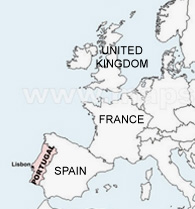President Anibal Cavaco Silva of Portugal announced Monday, 17 May 2010, that he will set aside his “personal convictions” and sign into law a bill legalising same-sex marriages. The bill, supported by the Socialist government, had been passed in January this year by the country’s parliament.

During a heated debate then, Prime Minister Jose Socrates said the law would put right an injustice that caused unnecessary pain.
However, rightist parties objected and demanded a referendum.
After parliamentary passage, the president himself had forwarded the key provisions of the bill last month to the Constitutional Court for an opinion. The court ruled that they were constitutional, leaving the president the choice of either signing the bill into law or vetoing it.
However, his veto, if he used it, would likely be overturned by parliament. Furthermore, the president said he felt that members of parliament needed to focus on the economic crisis facing the country.
“I feel I should not contribute to a pointless extension of this debate, which would only serve to deepen the divisions,” he explained in his statement.
The law would make Portugal the sixth country in Europe to legalise same-sex marriage, after Belgium, the Netherlands, Spain, Sweden and Norway. The UK offers a civil partnership with almost all the rights of marriage.
Last week, Pope Benedict XVI, during his four-day visit of Portugal, called on Portuguese to oppose the new law, saying same-sex marriage and abortion were some of the most “insidious and dangerous” threats facing the world.
Portugal had legalised abortion in 2007. Although Portugal is overwhelmingly Roman Catholic, it is estimated that only about one in five of the country’s 10.6 million population are practising members of the faith.
Interestingly, in his speech to the pope on his arrival, President Silva pointedly welcomed Benedict XVI to a “free and plural Portugal” whose people have “a calling to recognise the value of diversity”.
This story was first published on Yawningbread.











 打印版本
打印版本










读者回应
As for your last sentence.... You can raise a "modern, loving family" wherever, it's not society that defines one, but how you do things at your own home. I know "modern, loving families" in countries way more conservative than Portugal and any european country. Things are not so black and white.
请先登入再使用此功能。